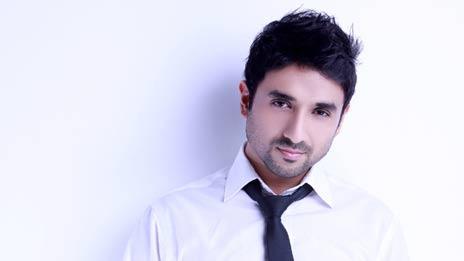How Amazon and Netflix are changing comedy in India
- Published
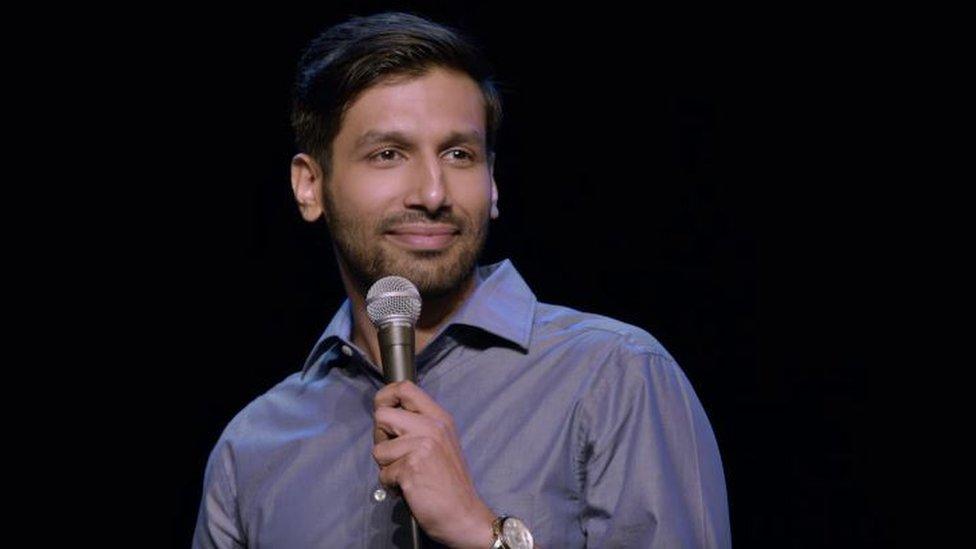
Kanan Gill is one of India's best known stand-up comics
Standing on a stage facing an amused audience, Indian stand-up comic Kanan Gill recounts his experience of going for "handwriting analysis".
"The guy looked at my handwriting and said, 'Sir, you are very gullible,'" he says.
"I was like, 'How do you know that?'"
"And he's like, 'Because you came here.'"
The audience howls with laughter.
This is a clip from Mr Gill's hour-long Amazon Prime special, Keep It Real, which was released in 2017.
Mr Gill is one of several Indian comedians who have made shows for international streaming sites.
Netflix and Amazon Prime Video launched in India in 2016 and almost immediately started tapping into the country's stand-up comedy talent.
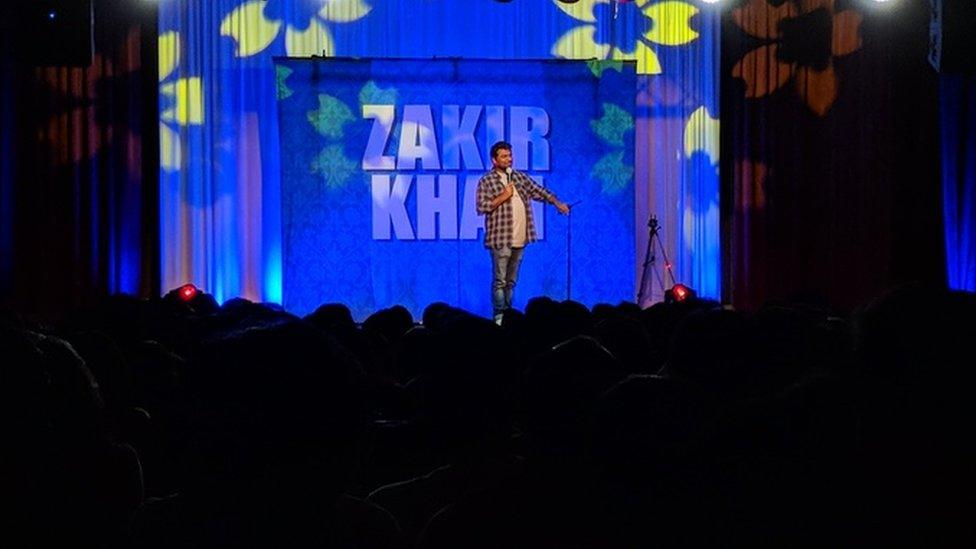
Zakir Khan, 30, started out as a stand-up comic on YouTube
Comedy was already taking off in India, thanks to YouTube. Stand-up comics like Zakir Khan and Kenny Sebastian, and comedy groups such as All India Bakchod (AIB) and The Viral Fever (TVF), have amassed a few million followers on the video-sharing site.
But the arrival of Amazon and Netflix, subscription-based platforms that commission shows and pay for production, offers new possibilities. Uploading a thrifty 10-minute clip on YouTube is no longer the only option for upcoming comedians.
If they got their own special on Amazon, they can do an hour-long show and experiment with different styles of humour.
"I wanted a grand piano in the backdrop and they made it possible," says Aadar Malik, whose comedy special debuted on Amazon Prime Video in early 2017.
"These shows have in a way brought us to the same level as Bollywood and cricket," says Zakir Khan, equating stand-up comedy with India's two most successful sources of entertainment.
But, Mr Khan says, when he started doing stand-up comedy in 2011, he never imagined that the profession would "become this big in India".
The 30-year-old shot to fame after winning Comedy Central's competition for India's Best Stand Up Comedian in 2012.
Now, he has his own 90-minute-long comedy special and an eight-episode fictional series on Amazon Prime Video.
So, is stand-up comedy on the verge of becoming the next big thing in India?
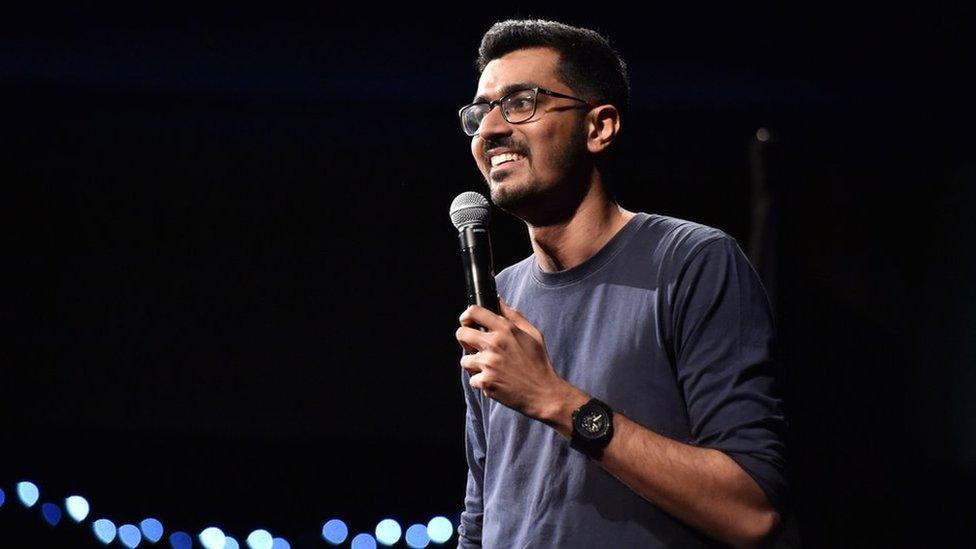
Azeem Banatwalla says the profession has come an "insanely long way"
Since their launch, both Amazon and Netflix have been aggressively courting young Indian comedians with a large following on social media.
In 2017, Netflix released comedy specials featuring Vir Das and Aditi Mittal - two of India's earliest and best known comedians.
Mr Das also starred in the Bollywood hit film, Delhi Belly, and has more than 7.5 million Twitter followers. Ms Mittal, who has close to 400,000 Twitter followers, was in the American documentary Stand-Up Planet with Indian-American comedian Hasan Minhaj.
In 2017 alone, Amazon Prime Video launched comedy specials featuring 14 Indian stand-up comics.
"Indians love comedy and we picked up that signal from our customers," says Vijay Subramaniam, director of content, Amazon Prime Video.
"It was made possible by the fact that the country has a growing lead of comedians of different statures, popularity and genres."
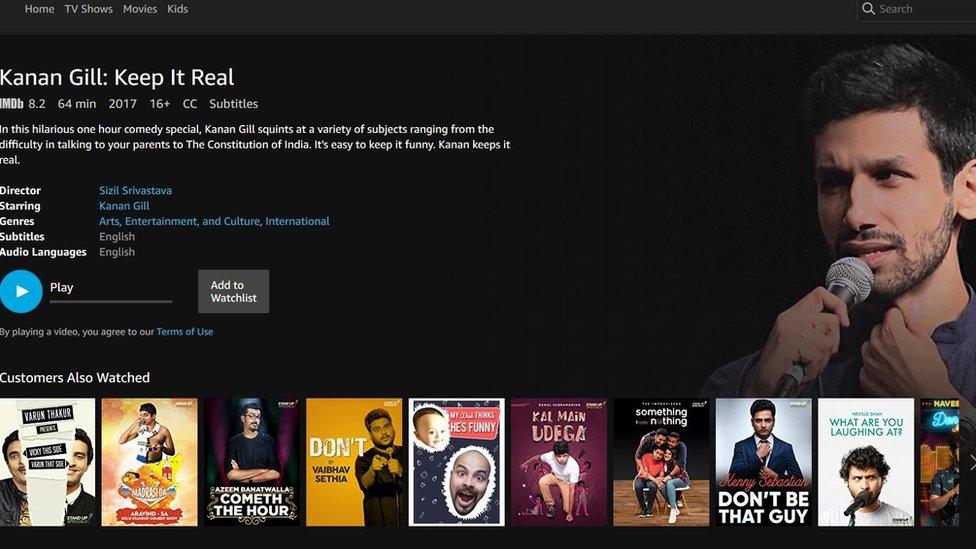
Amazon and Netflix have been aggressively courting Indian comedians
Sapan Verma, whose comedy special was one of the first to release on Amazon, says this is "a new career goal for a lot of comedians".
"It has made a perspective shift. Now a stand-up special is what everybody is working towards."
For many comedians, one of the key benefits of having a show on a global platform is the possibility of reaching audiences in different countries. But with that, Mr Verma says, comes the added pressure to produce a "kickass product".
"Your special is a representation of you," says comedian Neville Shah. "If you're not good in the first 10 minutes, you lose an audience for life."
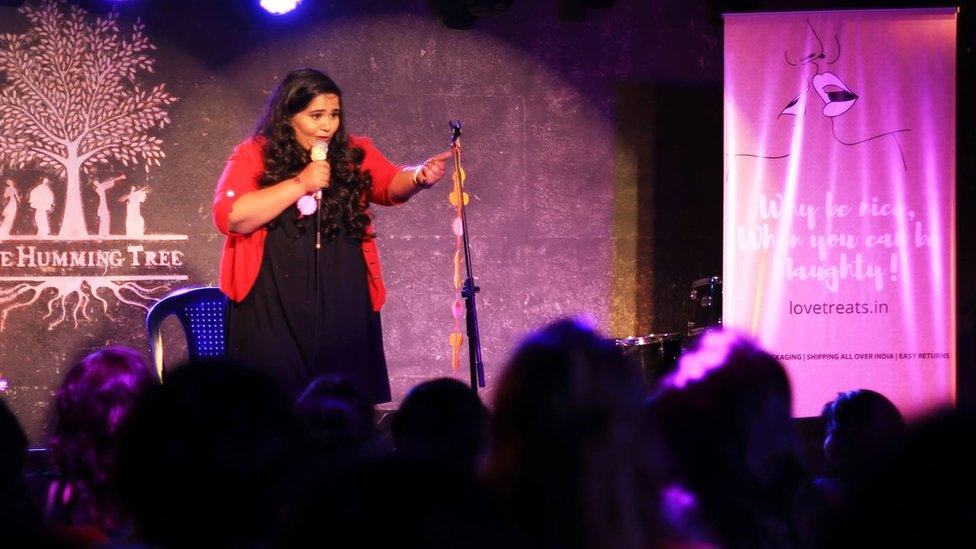
Sumukhi Suresh's comedy special will air on Amazon Prime Video later this year
Sumukhi Suresh, whose comedy web series "Pushpavalli" released on Amazon in December 2017, believes global streaming services have made the Indian comedy scene more professional and also more demanding.
"Earlier, a 10-15 minute show was a big deal," says Ms Suresh. "Now, writing a solid hour-long show is important."
Comedian Azeem Banatwalla says the profession has come an "insanely long way" - and most Indian stand-up comics would agree that's been the case since they first started out.
"In the US, comedians take 15-20 years to get their own special," Banatwalla says, adding that Indian stand-up comics got such an opportunity within six or seven years.
Amazon is set to release another season of Indian comedy specials this year.
The service also plans to launch its first comedy talent show - Quest for the next stand-up comic - to discover and encourage young stand-up comics in India.
"Our customers love what they're getting. So there's a clear need for us to continue growing in this direction," Mr Subramaniam added.
Ms Suresh is currently making a show that will air as part of Amazon Prime's second offering of comedy specials in 2018.
"The good thing is that since it's a second league special, there's already a market that's been created by the folks last year," she says. "The disadvantage is that the standards are higher."
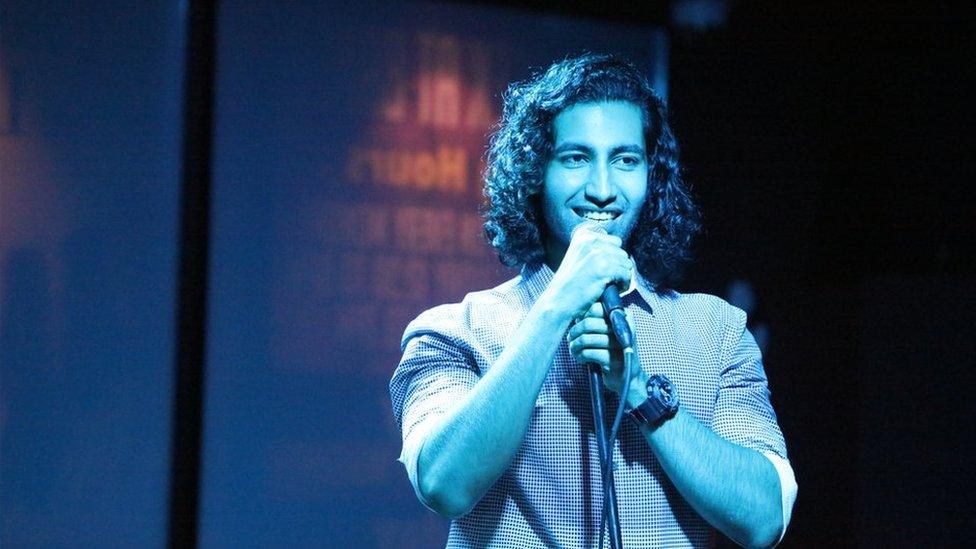
Aadar Malik is part of a popular Indian comic group, SNG Comedy
Netflix too has recently announced that it will release two more live stand-up comedy specials by Vir Das.
"We have seen how comedy has become a popular genre in India and this tells us that there's a special place for humour among our members in India," a Netflix spokesperson told the BBC in an email conversation.
For most stand-up comics in India, having their own special is an emotional journey.
"Releasing a five minute YouTube clip is cool but a special is where the audience really gets to know you," said Mr Verma.
"It has a deeper emotional connect to it and that changes a lot."
- Published8 January 2016
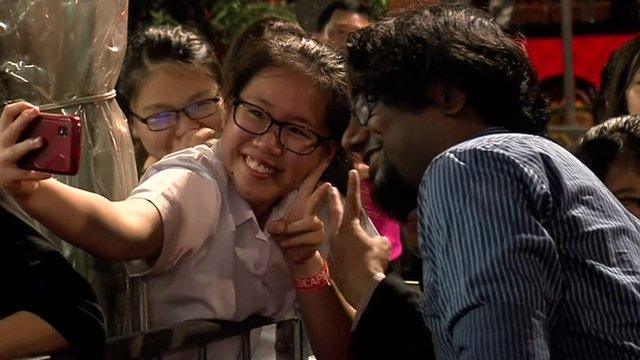
- Published23 November 2011
